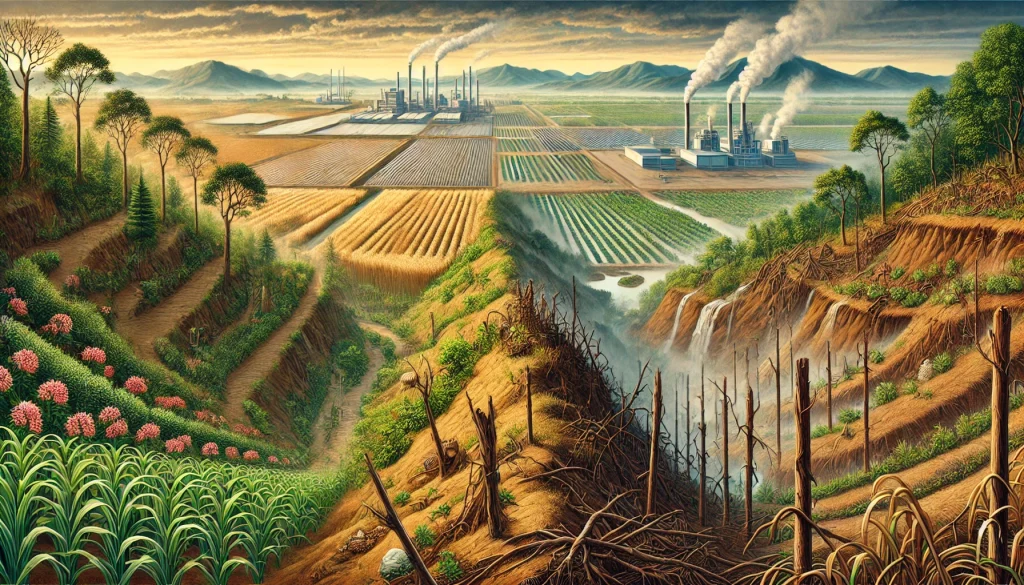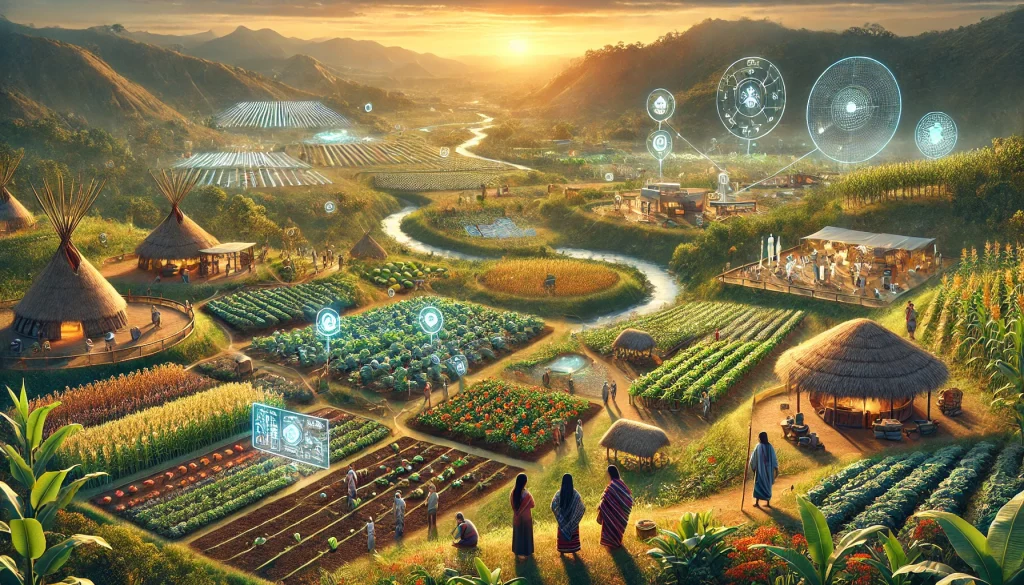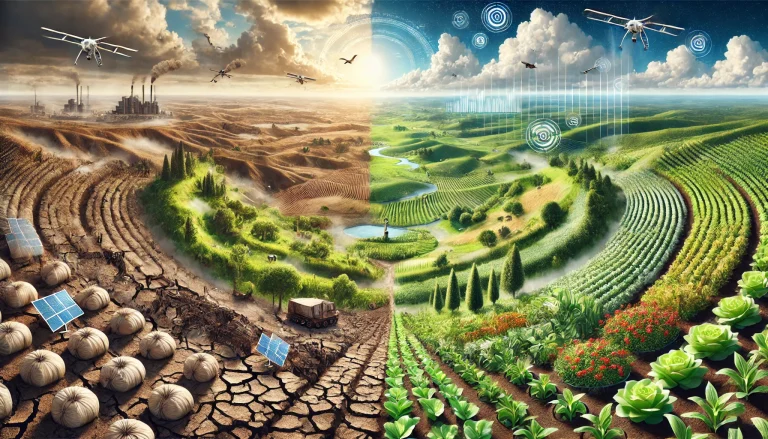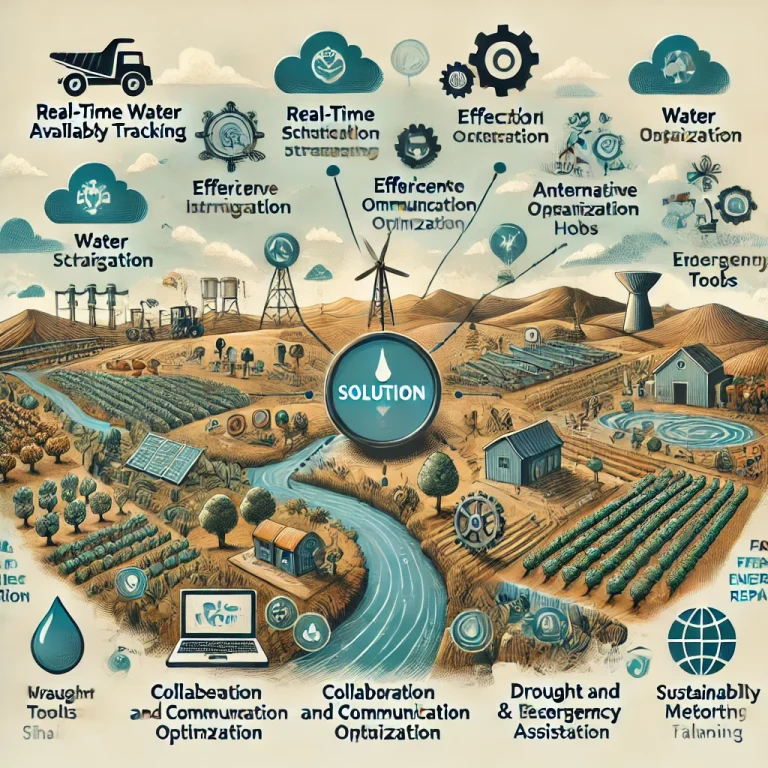Problem Statement:
Indigenous agricultural knowledge, encompassing a wide range of sustainable farming practices developed and refined over generations, is rapidly disappearing in the face of modern agricultural methods. These traditional practices, deeply rooted in the understanding of local ecosystems, have historically played a vital role in ensuring food security, preserving biodiversity, and maintaining the health of the land. However, as industrial agriculture expands, bringing with it standardized methods that prioritize efficiency and high yields, the unique agricultural knowledge of indigenous communities is increasingly marginalized. The loss of this knowledge not only erodes cultural heritage but also diminishes the diversity of agricultural practices that are crucial for creating resilient and sustainable food systems. Indigenous practices such as crop rotation, polyculture, and water conservation techniques are often better suited to local conditions than modern methods, offering solutions to the environmental challenges posed by climate change and soil degradation. Furthermore, these practices contribute to the conservation of plant and animal biodiversity, which is essential for the adaptability and resilience of global food systems. The rapid decline in the transmission of this knowledge threatens the sustainability of agriculture, as the world loses valuable insights into managing land and resources in ways that are harmonious with nature. Addressing this issue requires urgent action to document, preserve, and integrate indigenous agricultural knowledge into modern farming practices, ensuring that this wisdom continues to benefit future generations.
Pain Points:
- Erosion of Cultural Heritage: The loss of indigenous agricultural knowledge leads to the erosion of cultural identity and heritage within communities.
- Diminished Agricultural Diversity: The disappearance of traditional practices reduces the variety of agricultural methods available for sustainable farming.
- Vulnerability to Climate Change: The loss of indigenous knowledge weakens the ability to adapt farming practices to changing environmental conditions.
- Soil Degradation: Modern methods that disregard traditional practices can lead to soil erosion, nutrient depletion, and long-term land degradation.
- Loss of Biodiversity: The decline in traditional farming methods threatens the conservation of plant and animal species that are crucial for ecosystem resilience.
- Overreliance on Industrial Agriculture: A focus on modern, industrial methods reduces the reliance on diverse, locally adapted agricultural systems.
- Displacement of Indigenous Communities: The spread of industrial agriculture can lead to the displacement of indigenous communities and the loss of their traditional lands.
- Knowledge Transmission Barriers: Younger generations may lack opportunities to learn and carry forward indigenous agricultural practices.
- Neglect of Traditional Crops: The focus on commercial crops leads to the neglect of traditional, locally adapted crops that are often more resilient and nutritious.
- Marginalization of Indigenous Voices: Indigenous communities are often excluded from decision-making processes related to agricultural development and land management.

Future Vision:
The future of sustainable agriculture depends on the preservation and integration of indigenous agricultural knowledge into modern farming practices. This vision involves the creation of a digital platform dedicated to documenting, preserving, and promoting indigenous farming practices. The platform would serve as a repository of knowledge, collecting and sharing information on traditional agricultural methods from around the world. It would also provide tools and resources for indigenous communities to document their practices, ensuring that this knowledge is passed down to future generations. By fostering collaboration between indigenous farmers, researchers, and modern agricultural practitioners, the platform would facilitate the exchange of ideas and the integration of sustainable practices into broader agricultural systems. Additionally, the platform would advocate for the protection of indigenous lands and the recognition of the cultural and ecological value of traditional farming methods. Educational programs and community workshops offered through the platform would help raise awareness of the importance of preserving indigenous knowledge and its relevance to contemporary challenges such as climate change and food security. Partnerships with NGOs, government agencies, and agricultural organizations would support the dissemination of indigenous practices and the development of policies that promote their inclusion in modern farming systems. Ultimately, this platform would help create a more resilient and sustainable food system by preserving the agricultural wisdom of indigenous communities and ensuring its continued relevance in the modern world.
Use Cases:
- Knowledge Documentation: Indigenous communities use the platform to document and preserve their traditional agricultural practices.
- Integration of Sustainable Practices: Farmers and agricultural organizations access the platform to integrate indigenous methods into modern farming systems.
- Educational Resources: The platform provides educational materials and workshops on the value of indigenous agricultural knowledge.
- Community Collaboration: Indigenous communities connect and collaborate on preserving and promoting their agricultural practices.
- Policy Advocacy: The platform supports advocacy efforts for the protection of indigenous lands and the inclusion of traditional knowledge in agricultural policies.
- Cultural Heritage Preservation: The platform helps communities preserve their cultural identity by documenting and promoting traditional farming methods.
- Climate Adaptation Strategies: Farmers use the platform to learn about indigenous practices that enhance resilience to climate change.
- Biodiversity Conservation: The platform offers resources on the conservation of plant and animal species through traditional farming methods.
- Market Access for Traditional Crops: The platform connects indigenous farmers with markets interested in traditional, locally adapted crops.
- Youth Engagement: The platform engages younger generations in learning and practicing indigenous agricultural methods.
Target Users and Stakeholders:
Target Users:
- Indigenous communities seeking to preserve and promote their agricultural knowledge.
- Farmers and agricultural organizations interested in integrating sustainable practices.
- Educational institutions and researchers focused on sustainable agriculture and cultural preservation.
Stakeholders:
- Government agencies responsible for agriculture, cultural heritage, and indigenous affairs.
- NGOs working on sustainable agriculture, biodiversity conservation, and indigenous rights.
- Technology companies developing digital platforms for knowledge documentation and sharing.
- Environmental organizations focused on climate change adaptation and ecosystem conservation.
- Consumers interested in supporting sustainably produced food and traditional agricultural practices.
Key Competition:
- Seed Savers Exchange: A non-profit organization dedicated to preserving heirloom seeds and promoting biodiversity in agriculture.
- Slow Food International: An organization that promotes traditional and sustainable food production methods, including the preservation of indigenous knowledge.
- Terralingua: Focuses on preserving biocultural diversity, including the agricultural practices of indigenous communities.
- Indigenous Peoples’ Biodiversity Network (IPBN): Works to protect indigenous knowledge systems and promote sustainable practices.
- Pachamama Alliance: Supports indigenous communities in preserving their land and cultural practices, including traditional agriculture.
Products/Services:
- Knowledge Documentation Tools: Digital tools for documenting and preserving indigenous agricultural practices.
- Integration Resources: Guides and tools for integrating indigenous methods into modern farming systems.
- Educational Programs: Workshops, courses, and materials on the value and application of indigenous agricultural knowledge.
- Community Collaboration Platforms: Spaces for indigenous communities to share knowledge and collaborate on preservation efforts.
- Policy Advocacy Support: Resources and campaigns advocating for the protection of indigenous lands and knowledge.
- Biodiversity Conservation Tools: Resources for conserving plant and animal species through traditional farming methods.
- Market Access Solutions: Platforms connecting indigenous farmers with markets interested in traditional crops.
- Cultural Heritage Preservation Services: Tools and initiatives for preserving the cultural identity of indigenous communities.
- Climate Adaptation Strategies: Resources for using indigenous practices to enhance resilience to climate change.
- Youth Engagement Initiatives: Programs that engage younger generations in learning and practicing traditional agricultural methods.
Active Startups:
- Cultural Survival: Works to support indigenous peoples’ rights and cultural preservation, including traditional agricultural practices.
- Farm2Facts: A platform that helps small farmers and indigenous communities document and market their produce, emphasizing traditional and sustainable practices.
- Agroecology Fund: Provides grants to support sustainable farming practices and the preservation of indigenous agricultural knowledge.
- Navdanya: Focuses on seed saving, biodiversity conservation, and the promotion of organic farming, working closely with indigenous communities.
- ECO-AGRO: Develops tools and resources for integrating traditional farming practices with modern agroecology techniques.
Ongoing Work in Related Areas:
- Research on agroecology and traditional farming methods that enhance sustainability and resilience.
- Development of digital platforms for knowledge documentation and the sharing of indigenous agricultural practices.
- Cultural preservation programs that focus on maintaining the agricultural heritage of indigenous communities.
- Biodiversity conservation initiatives that promote the use of traditional farming practices to protect plant and animal species.
- Policy advocacy efforts to protect indigenous lands and integrate traditional knowledge into national and international agricultural policies.
Recent Investment:
- $75 million investment in Cultural Survival in 2023 to expand their efforts in supporting indigenous peoples’ rights and cultural preservation, including agricultural knowledge.
- $50 million raised by Navdanya in 2022 to scale their seed-saving and biodiversity conservation initiatives in collaboration with indigenous communities.
- $35 million in funding for Agroecology Fund in 2023 to support projects that integrate traditional agricultural knowledge with sustainable farming practices.
- $25 million in venture capital for Farm2Facts in 2024 to develop their platform for documenting and marketing traditional and sustainable agricultural products.
- $20 million invested in ECO-AGRO in 2023 to enhance their tools for integrating traditional farming practices with modern agroecology.
Market Maturity:
The market for platforms and initiatives that preserve and promote indigenous agricultural knowledge is gradually maturing as awareness of the importance of cultural heritage and sustainable practices grows. The increasing recognition of the value of traditional farming methods in addressing contemporary challenges such as climate change, soil degradation, and biodiversity loss has led to greater interest in documenting and integrating this knowledge into modern agricultural systems. Investments in digital platforms, educational programs, and market access solutions that support indigenous communities are on the rise, driven by the need to protect cultural heritage and promote sustainable food systems. While challenges remain in reaching all communities and ensuring the widespread adoption of traditional practices, the market is poised for continued growth. As more stakeholders recognize the importance of preserving indigenous agricultural knowledge, the potential to create resilient, sustainable, and culturally rich food systems will continue to expand.
Summary:
Indigenous agricultural knowledge, which includes sustainable farming practices developed over generations, is rapidly disappearing as modern agricultural methods take precedence. This loss not only erodes cultural heritage but also diminishes the diversity of agricultural practices that can contribute to sustainable food systems. A digital platform dedicated to documenting, preserving, and promoting indigenous farming practices could help safeguard this knowledge and ensure its continued relevance in modern agriculture. By fostering collaboration, providing educational resources, and advocating for the protection of indigenous lands, the platform would help create a more resilient and sustainable food system. As the market for these solutions matures, driven by increased investment and awareness, there is a significant opportunity to preserve cultural heritage and promote sustainable agriculture.



